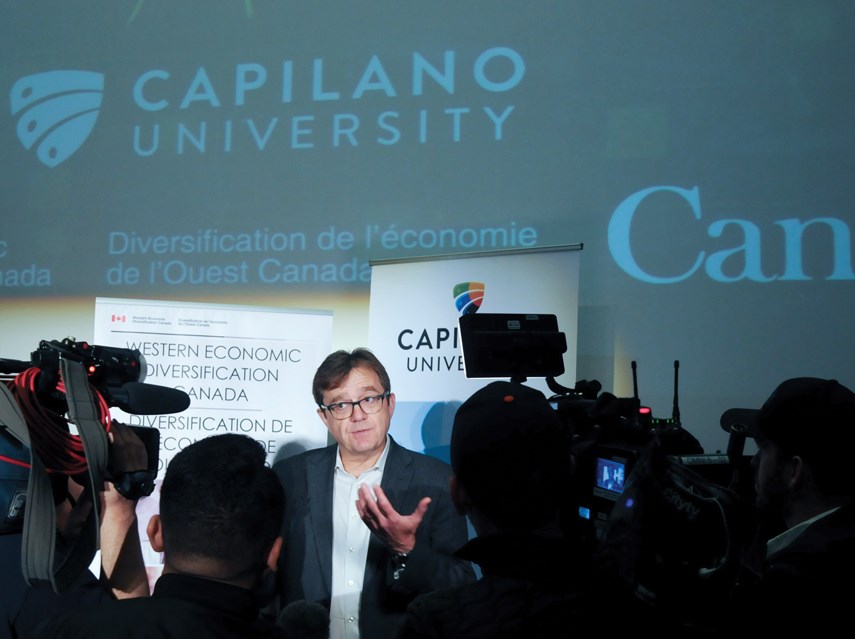North Vancouver MP and Fisheries and Oceans Canada Minister Jonathan Wilkinson is defending his government’s new restrictions that will severely curtail fishing for the at-risk Fraser River chinook salmon.
The government announced last week a mandatory catch-and-release fishery for sport and recreational anglers until July 31 in the Southern Strait of Georgia, giving the returning salmon every opportunity to safely spawn. After that, anglers will be able to keep one chinook per day. Indigenous anglers fishing for sustenance and ceremonial purposes will be restricted until July 15. Recreational chinook fishing within the Fraser River will be banned until at least late August. Commercial fishing will be banned until Aug. 20.
In an open letter, the Sport Fishing Institute of B.C. criticized the move, saying it would do broad socioeconomic harms without much environmental payoff.
“The implementation of non-retention of chinook to the public fishery on the South Coast of B.C. would result in the immediate removal of hundreds of millions in anticipated economic activity plus the loss of thousands of jobs in small coastal communities across Vancouver Island, the Sunshine Coast and the Lower Mainland,” wrote institute president Robert Alcock. “A South Coast non-retention approach does not achieve balance between conservation objectives and socioeconomic impacts, because the benefits to escaping fish to the spawning grounds is less than five per cent compared to an approach that would enable the public fishery to survive.”
But Wilkinson said the government looked at all possible options and is standing firm in the interests of preserving the chinook as a species.
“It serves nobody’s interests, fisher or anybody else, if we allow these species to go extinct. My first job was as a fishing guide. My father used to own a fishing camp. I am very, very, very much aware of the concerns and the potential impacts. We’ve done everything that we possibly can to mitigate those impacts but my job first and foremost as the minster of fisheries and oceans, is to ensure that we are appropriately managing these stocks for the long term,” he said. “I’m not prepared to be a minister of fisheries and oceans that knowingly puts the Fraser chinook salmon on a path to extinction.”
Wilkinson made the comments at an unrelated government announcement in North Vancouver on April 18.
Wilkinson said chinook fishing is just one of the reasons tourists choose British Columbia for a destination and taken as a whole, the impact would be “relatively modest.”
And it will still be a thrilling experience for those who choose to come for the catch-and-release fishery.
“Many of the folks that are coming to fish, are coming for the excitement associated with catching a chinook. They’re not necessarily coming for the association of killing a chinook and taking it home,” he said.



